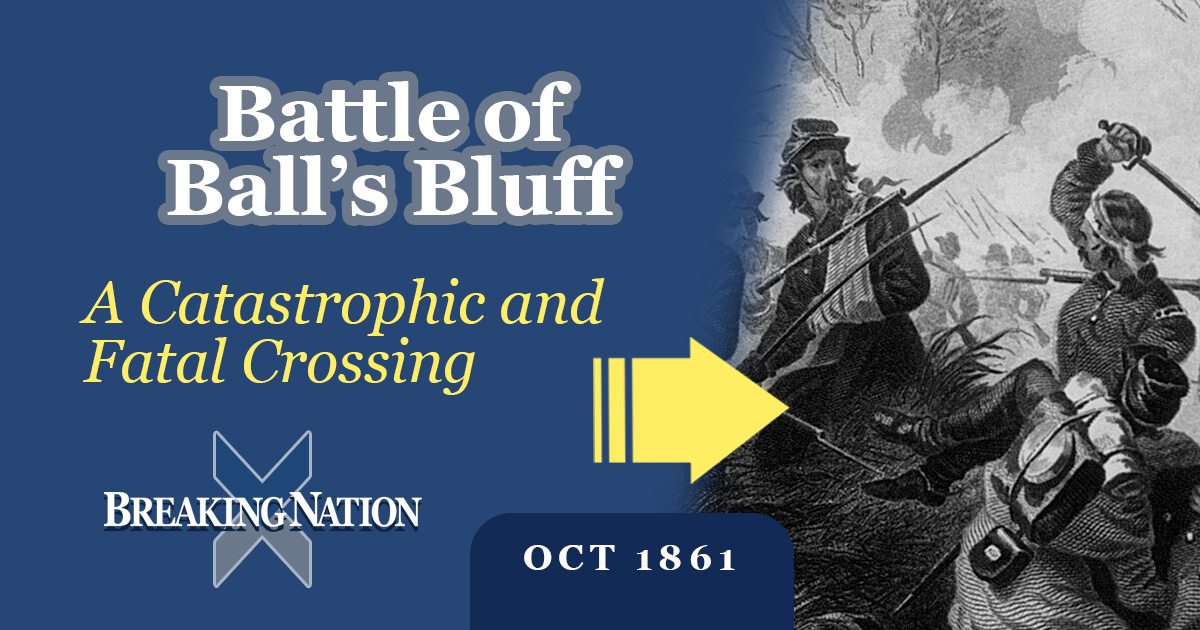Disaster on the Potomac: The Battle of Ball’s Bluff

The Battle of Ball’s Bluff, fought on October 21, 1861, along the Potomac River in Virginia, was a relatively small clash by later Civil War standards, but its consequences reverberated far beyond the battlefield. At its core, the fight revealed the dangers of poor intelligence, uncoordinated leadership, and the high political stakes of the early war. Though fewer than 2,000 Union and Confederate soldiers were engaged, the battle produced an outsized impact on public opinion and policymaking in Washington, D.C.
The Union operation began as a reconnaissance mission across the Potomac, intended to probe Confederate positions near Leesburg. Poorly handled from the start, Union commanders relied on faulty information suggesting that Confederate forces were lightly positioned and vulnerable. Colonel Edward Baker, a close friend of President Abraham Lincoln, led Union troops across the river but soon found himself facing a stronger Confederate force under Nathan “Shanks” Evans. With the river at their backs and no room for maneuver on the bluffs, Baker’s men were effectively trapped. When Baker was killed in the fighting, Union lines collapsed into chaos. Hundreds of soldiers were either shot down, captured, or drowned trying to flee across the river.
Though casualty totals—roughly 1,000 in total, most on the Union side—were modest compared to later bloodbaths, Ball’s Bluff had symbolic weight. The sudden death of Colonel Baker, a sitting U.S. senator, was a shocking reminder that the nation’s political leaders were not insulated from the dangers of war. His loss also intensified scrutiny of Union leadership at a moment when Northern morale was already shaken by earlier defeats at Bull Run and Wilson’s Creek.
In the aftermath, Congress responded by creating the Joint Committee on the Conduct of the War, a powerful oversight body tasked with investigating Union defeats and pressing military leaders to prosecute the conflict more aggressively. The committee’s work would shape the course of Union strategy, sometimes to the detriment of generals who fell out of political favor. Thus, a failed reconnaissance spiraled into a broader debate about competence, accountability, and the direction of the war effort.
In a sense, Ball’s Bluff was less important as a military event than as a political and psychological turning point. It hardened divisions in Washington, underscored the war’s unpredictability, and foreshadowed the immense human costs yet to come. The battle stands as an early lesson in how misjudgment on the field could ripple into policy at the highest levels of government.
Breaking Nation: A Civil War Podcast explores the American Civil War, its turning points, and our national memory. Discover full episodes, transcripts, and resources at www.breakingnation.com — your destination for in-depth Civil War podcast content and fresh perspectives on America’s past. Listen on Apple Podcasts, Spotify and Amazon Music.




